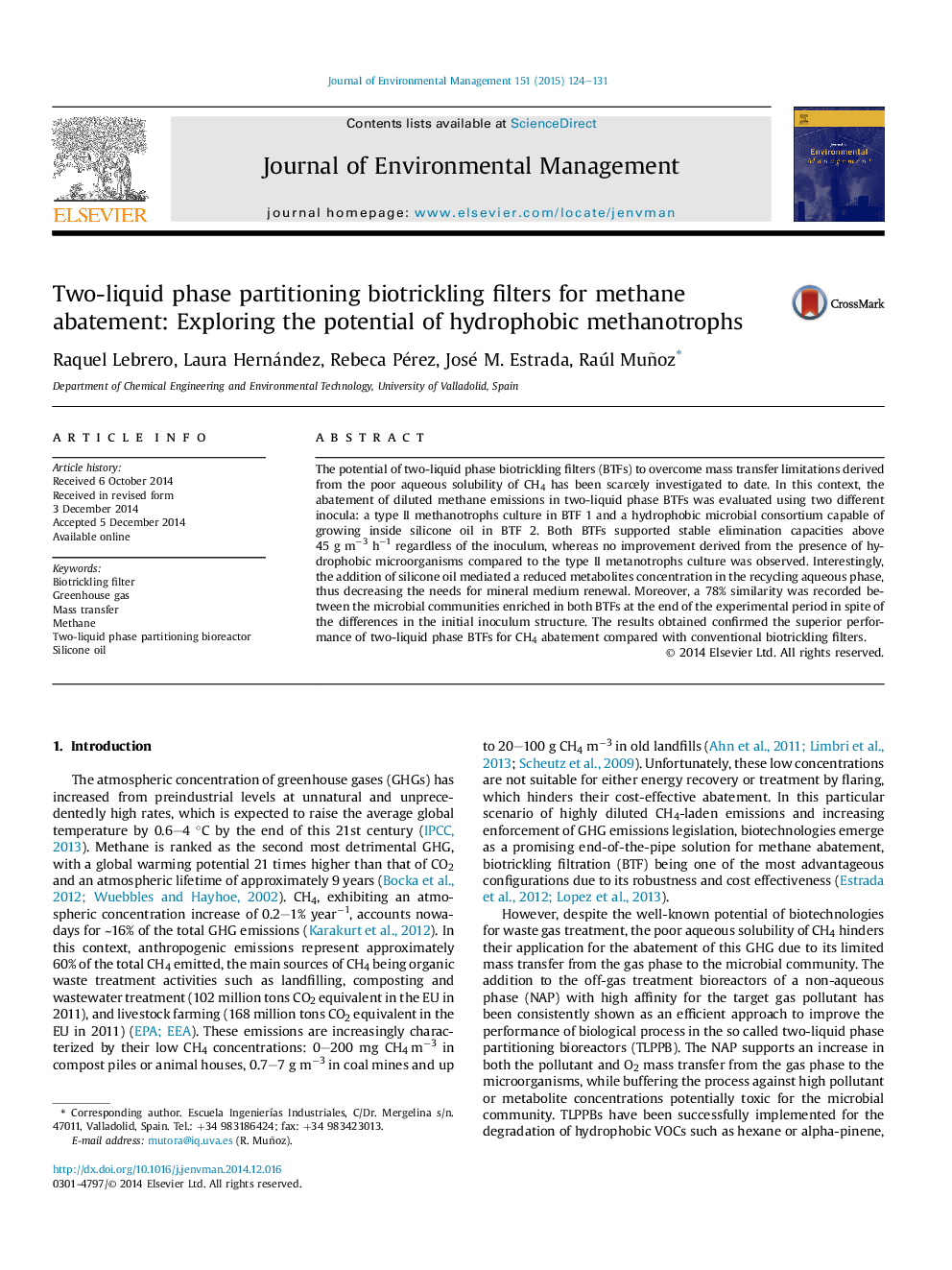| Article ID | Journal | Published Year | Pages | File Type |
|---|---|---|---|---|
| 7482714 | Journal of Environmental Management | 2015 | 8 Pages |
Abstract
The potential of two-liquid phase biotrickling filters (BTFs) to overcome mass transfer limitations derived from the poor aqueous solubility of CH4 has been scarcely investigated to date. In this context, the abatement of diluted methane emissions in two-liquid phase BTFs was evaluated using two different inocula: a type II methanotrophs culture in BTF 1 and a hydrophobic microbial consortium capable of growing inside silicone oil in BTF 2. Both BTFs supported stable elimination capacities above 45 g mâ3 hâ1 regardless of the inoculum, whereas no improvement derived from the presence of hydrophobic microorganisms compared to the type II metanotrophs culture was observed. Interestingly, the addition of silicone oil mediated a reduced metabolites concentration in the recycling aqueous phase, thus decreasing the needs for mineral medium renewal. Moreover, a 78% similarity was recorded between the microbial communities enriched in both BTFs at the end of the experimental period in spite of the differences in the initial inoculum structure. The results obtained confirmed the superior performance of two-liquid phase BTFs for CH4 abatement compared with conventional biotrickling filters.
Related Topics
Physical Sciences and Engineering
Energy
Renewable Energy, Sustainability and the Environment
Authors
Raquel Lebrero, Laura Hernández, Rebeca Pérez, José M. Estrada, Raúl Muñoz,
